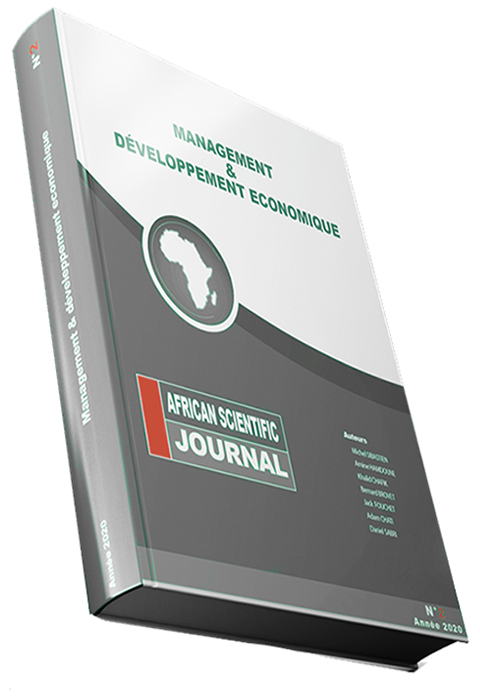The Impact of CAN 2025 on Territorial Development in Morocco
DOI:
https://doi.org/10.5281/zenodo.17006959Abstract
Résumé
Cet article vise à analyser comment l’organisation de la Coupe d’Afrique des Nations (CAN) 2025 peut être mobilisée par le Maroc comme vecteur de développement territorial durable. L’étude s’appuie sur un échantillon constitué des six principales villes hôtes – Rabat, Casablanca, Tanger, Marrakech, Fès et Agadir – qui concentrent la majorité des investissements en infrastructures sportives, de transport et numériques liés à l’événement. Les données mobilisées proviennent du Haut-Commissariat au Plan (HCP, 2022), complétées par les rapports du Ministère de l’Intérieur relatifs aux projets CAN 2025 ainsi que par des comparaisons avec des pays hôtes précédents. La méthodologie combine la modélisation économétrique spatiale, l’analyse décisionnelle multicritère (ADMC) et l’évaluation des politiques publiques afin de mesurer les effets directs et indirects sur la croissance, l’emploi et l’attractivité territoriale. Les résultats préliminaires montrent que les investissements liés à la CAN génèrent des externalités positives marquées à Rabat, Casablanca et Marrakech, mais soulignent également la nécessité d’une planification écologique et d’une gouvernance coordonnée pour assurer une redistribution équilibrée des retombées territoriales.
Mots clés : CAN 2025, développement territorial, infrastructures sportives, gouvernance régionale, durabilité.
Abstract
This article aims to examine how hosting the Africa Cup of Nations (CAN) 2025 can be harnessed by Morocco as a driver of sustainable territorial development. The study relies on a sample of six major host cities : Rabat, Casablanca, Tangier, Marrakesh, Fez, and Agadir, which concentrate most of the sports, transport, and digital infrastructure investments linked to the tournament. Data are drawn from the High Commission for Planning (HCP, 2022), official reports from the Ministry of the Interior regarding CAN 2025 projects, as well as comparative evidence from previous hosts. The methodology combines spatial econometric modeling, Multi-Criteria Decision Analysis (MCDA), and policy evaluation to assess the direct and indirect effects on growth, employment, and territorial attractiveness. Preliminary results show that CAN related investments generate significant positive externalities in Rabat, Casablanca, and Marrakesh, while also underlining the need for ecological transition and coordinated governance to ensure an equitable distribution of territorial benefits.
Keywords: CAN 2025, territorial development, sports infrastructure, regional governance, sustainability.
Downloads
Published
How to Cite
Issue
Section
License
Copyright (c) 2025 African Scientific Journal

This work is licensed under a Creative Commons Attribution-NonCommercial-NoDerivatives 4.0 International License.





















